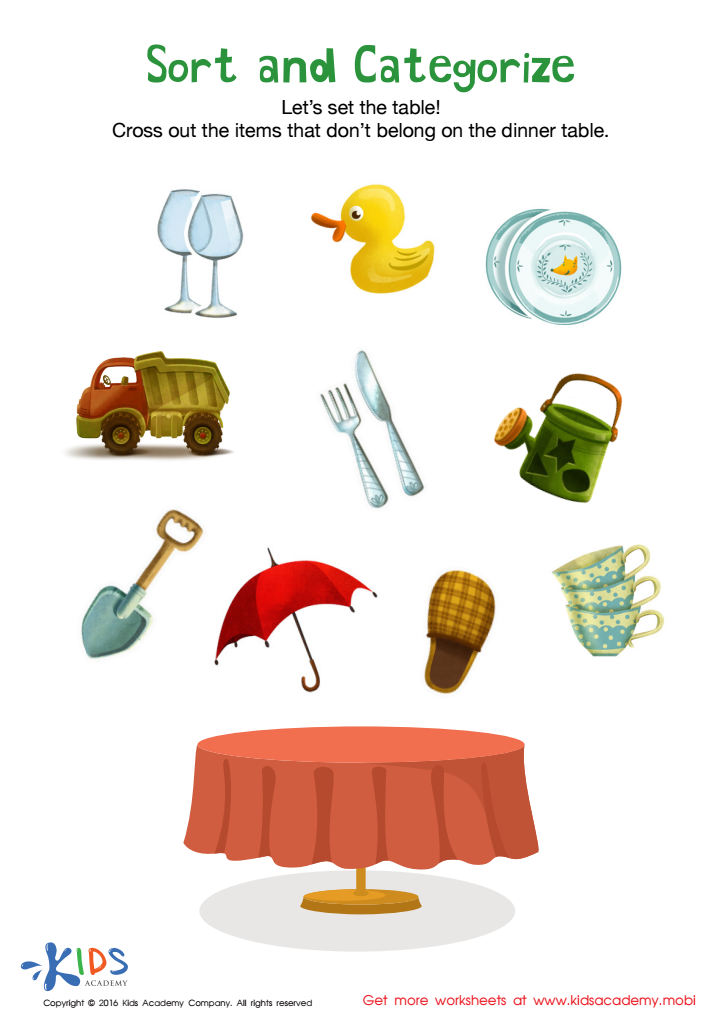Shape Recognition Normal Matching Worksheets for Ages 4-8
5 filtered results
-
From - To
Discover our engaging "Shape Recognition Normal Matching Worksheets" designed for children aged 4-8. These worksheets are an excellent tool for young learners to enhance their shape recognition skills while having fun. Each worksheet features a variety of activities where kids can match common shapes such as circles, squares, and triangles. Perfect for early learners, these worksheets support cognitive development and foundational math skills. With playful designs and age-appropriate challenges, your child will enjoy every activity while building essential knowledge. Download now from Kids Academy and make learning shapes a delightful experience for your little one!
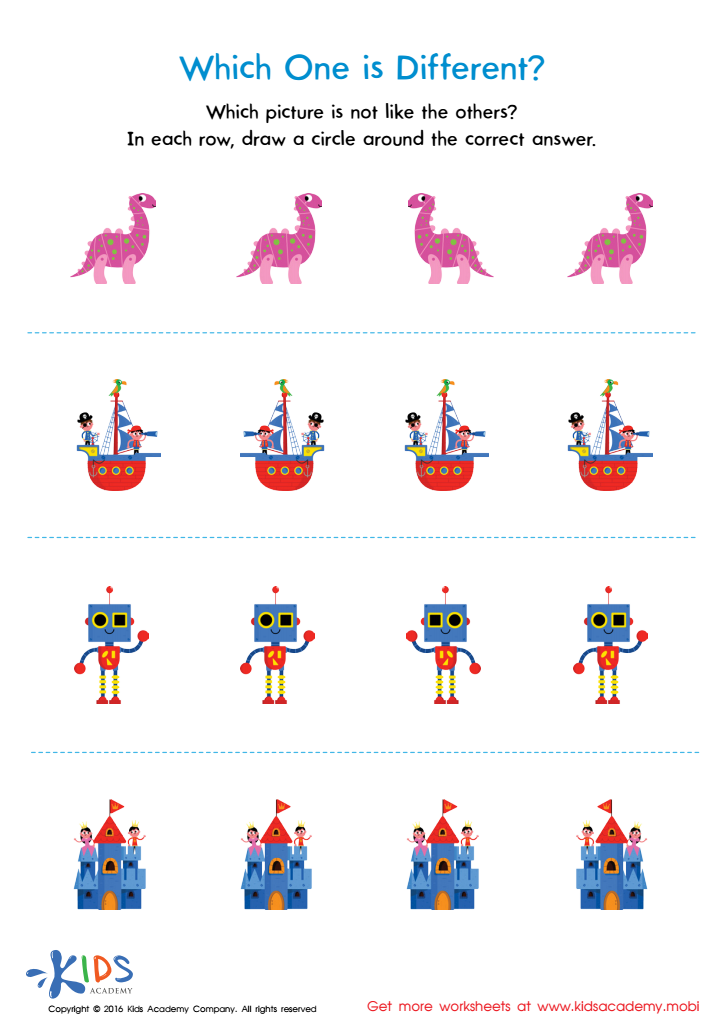

Which One Is Different Worksheet
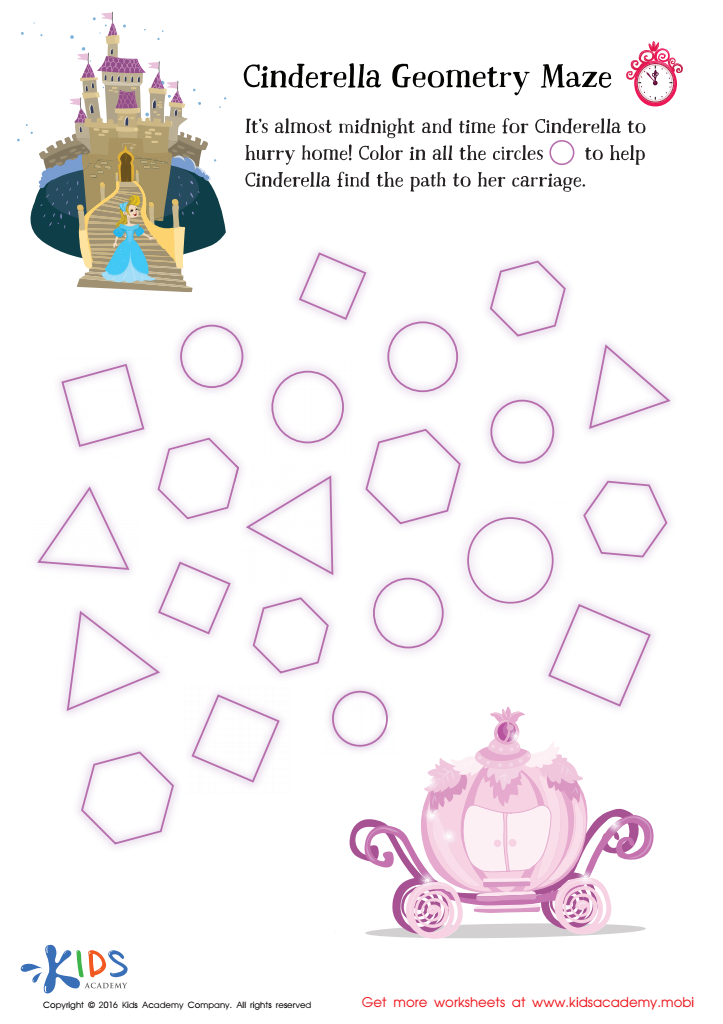

Cinderella Geometry Maze Worksheet
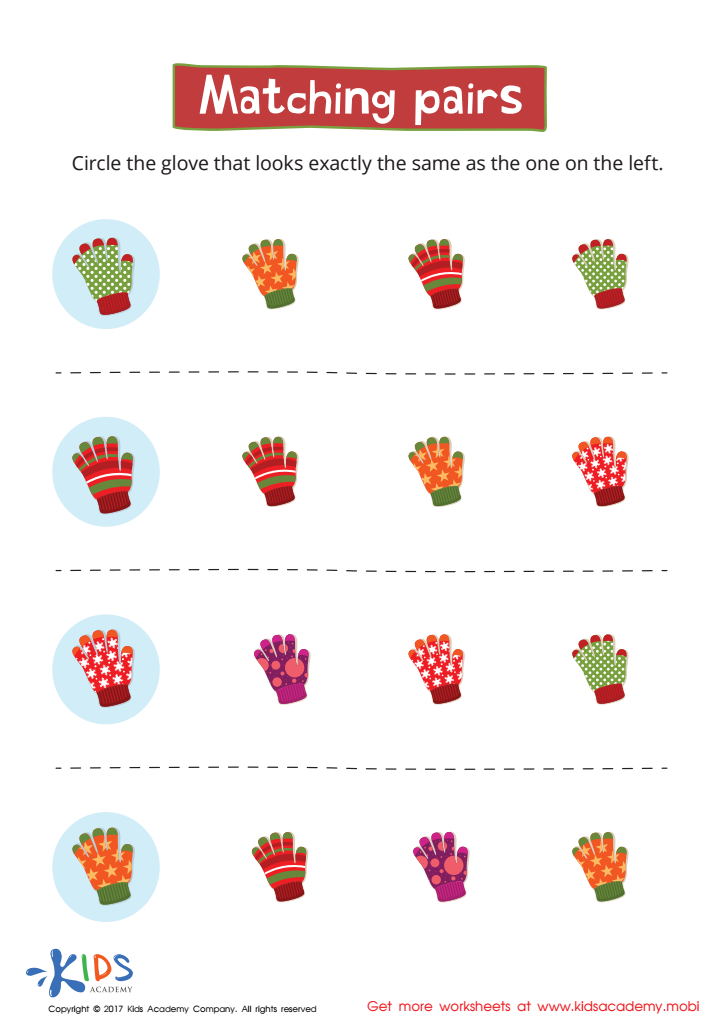

Matching: Matching Pairs Worksheet
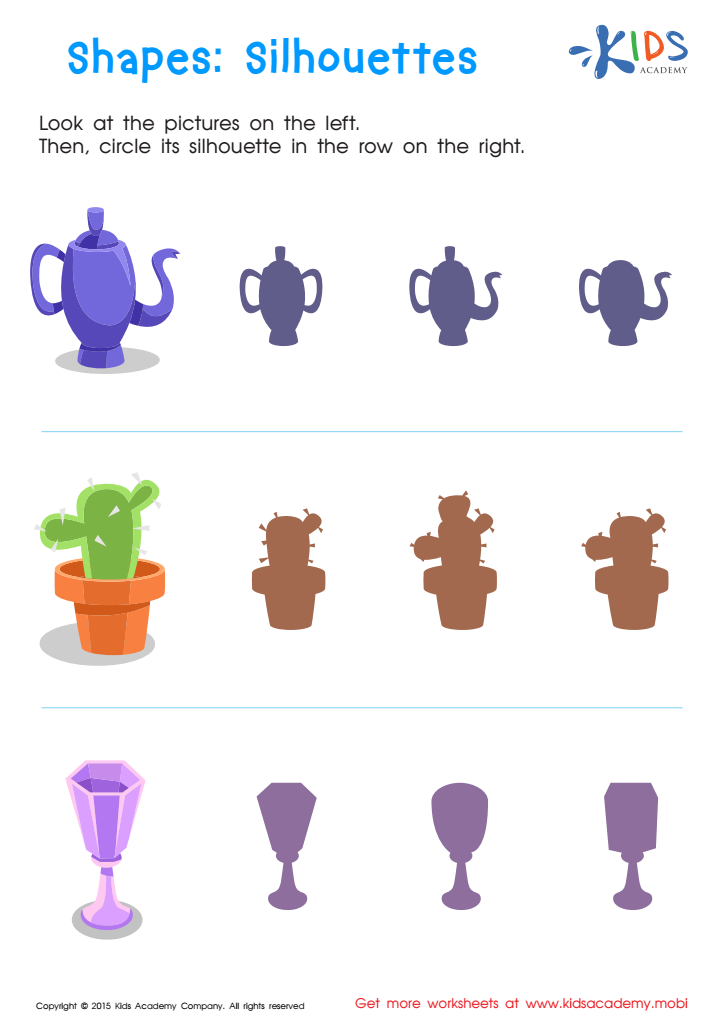

Silhouettes – Shapes Worksheet
Shape recognition and matching are foundational skills critical for cognitive development in children aged 4-8. At this stage, children's brains are highly receptive to learning, and engaging them in shape activities fosters several essential skills. Firstly, shape recognition enhances spatial awareness, allowing children to understand how different shapes fit together, a precursor to more advanced mathematical concepts.
Pattern recognition and matching exercises reinforce memory and attention to detail. When children identify differences and similarities among shapes, they practice logical thinking and problem-solving skills. These cognitive abilities are transferrable to other subjects, such as reading and science, where recognizing patterns and structuring information logically are paramount.
Moreover, fine motor skills are honed through activities like tracing or cutting out shapes. These activities develop hand-eye coordination and dexterity, vital for writing and other day-to-day tasks. Social and language skills can also be enhanced. When participating in group activities focused on shapes, children rehearse cooperative play, taking turns, and communicating effectively about what they observe and create.
In summary, caring about shape recognition and matching for young learners isn't just about understanding shapes. It's about building a strong foundation for cognitive, motor, and social skills that will support their overall development and future academic success.
 Assign to My Students
Assign to My Students
